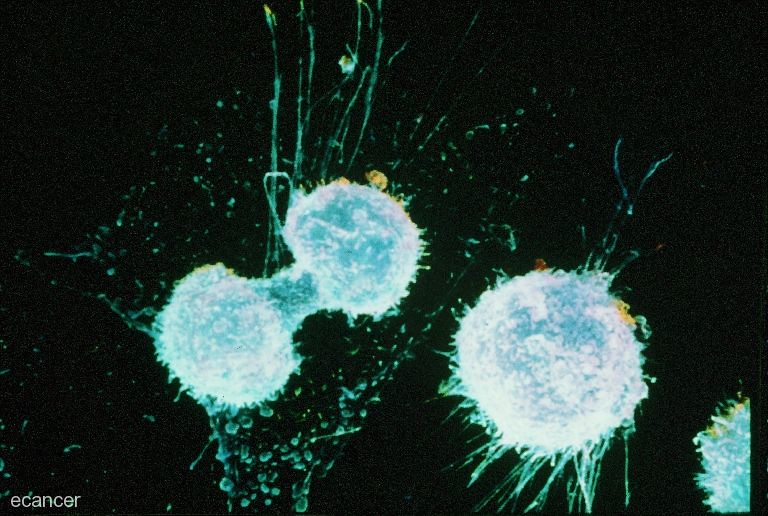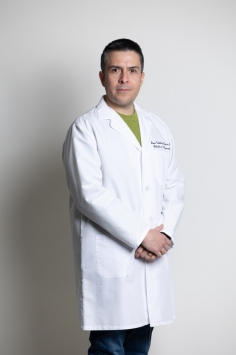
Dr. Juan R. Cubillos-Ruiz, the William J. Ledger, M.D. Distinguished Associate Professor of Infection and Immunology in Obstetrics and Gynecology, and Dr. David Lyden, the Stavros S. Niarchos Professor in Pediatric Cardiology, both from Weill Cornell Medicine, have been named inaugural recipients of the Pershing Square Foundation’s 2025 Ovarian Cancer Challenge Grant.
The challenge grant provides $750,000 in funding over three years to support innovative research into ovarian cancer that may advance the biological understanding of the disease, as well as its detection, prevention and treatment. The American Cancer Society estimates that ovarian cancer claims nearly 13,000 lives annually, making it one of the leading causes of cancer deaths among women.
“This is an incredible honor, especially because I’ve dedicated the past two decades of my scientific career to studying ovarian cancer,” said Dr. Cubillos-Ruiz, who is also co-leader of the Cancer Biology Program at the Sandra and Edward Meyer Cancer Center. “Since my Ph.D. training, I’ve been driven to unravel its complex immunobiology in hopes of creating better, more durable treatment options for patients.”
“I'm very honored for receiving this grant and that work in extracellular vesicles supporting metastasis is getting recognized,” said Dr. Lyden, who is also a professor of pediatrics and member of the Meyer Cancer Center at Weill Cornell Medicine.
Harnessing Immune Cells to Prevent Metastasis

Dr. Juan Cubillos-Ruiz. Credit: Julia Xanthos Liddy
Dr. Cubillos-Ruiz and his team seek to develop innovative strategies to eliminate metastatic ovarian tumors and prevent their recurrence. Through this new grant, the lab will investigate a previously underexplored population of immune cells that persist in the peritoneal cavity—the abdominal environment where ovarian cancer often spreads. The project seeks to harness these cells to induce long-lasting protective immunity against ovarian cancer. The team also plans to repurpose an existing immunotherapy drug—currently in clinical trials for head, neck, and liver cancers—for future use in ovarian cancer patients.
This latest recognition builds on Dr. Cubillos-Ruiz’s earlier success as a recipient of the 2017 Pershing Square Sohn Cancer Research Alliance Award, which provided foundational support that enabled the expansion of his research program and set the stage for several subsequent discoveries.
“This new award enables us to move forward with a novel therapeutic approach—one that educates the immune system to identify and eliminate ovarian cancer cells with precision and durability,” he added. “Our ultimate goal is to deliver transformative immunotherapies to patients who currently have very few effective treatment options.”
Enabling Ovarian Cancer Early Detection and Predicting Metastatic Risk
The challenge grant will support Dr. Lyden’s work studying how tumor cell-derived extracellular vesicles can help with earlier ovarian cancer detection, ultimately allowing clinicians to identify patients at risk for metastasis. Dr. Lyden investigates how specially packaged proteins, expressed on the surface of extracellular vesicles, direct metastasis to specific organ sites in the body, such as the omentum.

Dr. David Lyden. Credit: Ashley Jones
“By studying proteins packaged in extracellular vesicles as biomarkers in the blood of patients,” Dr. Lyden said, “we hope to diagnose ovarian cancer at its earliest stage and predict its ability to metastasize to specific organ sites.
Dr. Lyden said that these funds will be used to identify molecules that be new therapeutic targets with the goal of preventing the formation of environments that support the outgrowth of cancer cells at distant sites, environments called pre-metastatic niches. “This grant will help us characterize the cellular, molecular and metabolic profile of tissues in distant organs, such as the omentum and lymph nodes, not only at the metastatic stage, where most patients present but also at the pre-metastatic phase,” he said. “Our goal is to improve our ability to target ovarian cancer and metastasis, which have been challenging.”
At the end of the three-year grant, Dr. Lyden said he hopes to identify a set of extracellular vesicle proteins that could lead to a standard blood test for early ovarian cancer detection.
“There is an unmet clinical need to study ovarian cancer metastases and its early stages so we can prevent late-stage disease and metastases,” Dr. Lyden said. “That’s where the Pershing Square Foundation funding will be critical to making a great impact.”
The Ovarian Cancer Challenge Grant was established in 2025 by the Pershing Square Foundation, a philanthropic organization founded in 2006 to support leaders and organizations, including those in health and medicine, in tackling crucial social issues and delivering sustainable and scalable global impact. Dr. Cubillos-Ruiz and Dr. David Lyden will be honored alongside other grant recipients at an event in New York City later this month.
“This award comes at a crucial time,” Dr. Cubillos-Ruiz said. “Federal funding for ovarian cancer research has been significantly reduced, and the support from philanthropic organizations like the Pershing Square Foundation is now more vital than ever. Their investment helps sustain the discovery pipeline for aggressive cancers that are often underfunded and overlooked.”
Many Weill Cornell Medicine physicians and scientists maintain relationships and collaborate with external organizations to foster scientific innovation and provide expert guidance. The institution makes these disclosures public to ensure transparency. For this information, see profile for Dr. Juan Cubillos-Ruiz and Dr. David Lyden.



